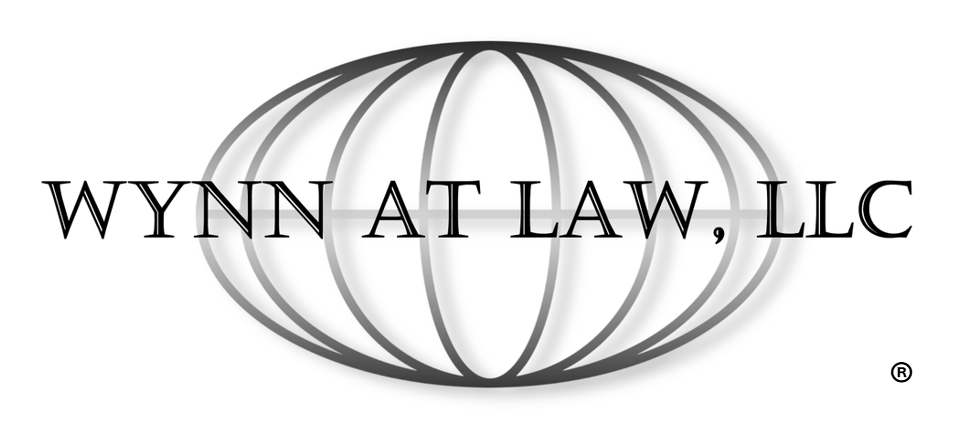Many Wisconsin residents are suffering through these difficult economic times and are concerned about foreclosure. If you have missed your mortgage payment or are in default on a home loan, your property may be foreclosed upon. This situation is stressful, and if you may lose your home, it is essential to get advice from a Wisconsin real estate foreclosure attorney. Contact Wynn at Law, LLC to schedule a consultation at one of our three Southeast Wisconsin law offices. In this meeting, we will review your financial situation and discuss options to resolve your debt.

When a homeowner falls behind on mortgage payments, the lender can file a lawsuit called a “foreclosure.” If the bank is successful with the foreclosure lawsuit, they can take possession of your property as payment on the remaining mortgage amount. Unfortunately, the foreclosure proceeding can be rather complicated and filled with financial statements and dense bank documents.
Your first step should be to hire a Wisconsin foreclosure attorney to represent your interests, because the judicial system controls Wisconsin foreclosures. The official foreclosure process begins when a lender files a lawsuit with the court. After the bank files a lawsuit, you will be served with a summons and complaint. You must respond to the suit, or you risk the courts granting the bank a default judgment.
To respond to the lawsuit, you file an “Answer” with the court. In the Answer, you either admit to the allegations which you know to be factual, or you deny allegations that you believe to be incorrect. Wisconsin law usually provides you with twenty days to file an Answer. Your Answer is also the time when you will introduce any affirmative defenses or counterclaims.
The court will initiate a trial if it finds that your Answer raises “Issues of Fact.” During the trial, the bank will provide evidence to convince the court to issue an order or judgment of sheriff’s sale. The bank will have an easier time winning if your Answer provides an insufficient defense. Your Answer may be considered inadequate for any of these reasons:
Even if your Answer raises good points, it may still be insufficient. That is why it is crucial to have an experienced foreclosure defense attorney fighting for you.
If the bank wins, then a notice of foreclosure will be published in a local newspaper and county website for three weeks before the sheriff’s sale can occur. You may stay in your home until the court confirms the sheriff’s sale. After the Judge confirms the sale, the new owner may evict you from your house. The new owner can ask the court to issue a writ of assistance, directing the county sheriff to remove you from the property.
At the foreclosure sale, the lender will make a bid on the property. Whoever makes the highest bid will then own the property. As a result, the property may sell for less than your total mortgage debt. In this case, the court may order a deficiency judgment, and you would owe the difference between the sale price and the remaining debt owed to the lender. Lenders may have the right to waive a deficiency judgment in order to shorten the redemption period (time you get to still live in your home).
Once a property has gone into foreclosure, other buyers can purchase it for significant savings. If you are interested in buying a property in foreclosure, contact our office, and we can determine your best course of action.
If you are behind on your mortgage payments, you should have received a default and demand letter from your lender or loan servicer. A default letter provides notice to the borrower that their loan is in default.
This period is called the “pre-foreclosure stage.” During this period, you can apply for loss mitigation solutions, such as:
Federal regulations are found under the federal Real Estate Settlement Procedures Act (RESPA). The Consumer Financial Protection Bureau’s website also lists the necessary citations for finding regulations applicable to your foreclosure. Wisconsin state foreclosure laws are found under Chapter 846 of the Wisconsin Statutes.
Real estate law is extremely complex; if you have questions, it is best to contact an experienced Wisconsin foreclosure attorney. Schedule a meeting with a Wynn at Law, LLC attorney to review your financial situation and discuss your options for avoiding foreclosure. We will answer any questions you may have about foreclosure or bankruptcy.

Before filing a lawsuit, the lender will likely contact you to discuss your options for loss mitigation. In addition to the standard loss mitigation options listed above, homeowners may be able to avoid foreclosure through filing for Chapter 13 bankruptcy, conducting a short sale, or deed in lieu process.
As your Foreclosure Attorney, we will communicate with the bank on your behalf. We will form a defense and offer creative mortgage repayment solutions to the bank.
If you face foreclosure or have overwhelming debt, you may be eligible to file for Bankruptcy. Bankruptcy triggers an automatic stay, which stops the foreclosure process. Chapter 13 bankruptcy is designed to establish a repayment plan that will allow you up to five years to pay outstanding debt. With this type of bankruptcy, it is possible to keep your home and car while discharging your debt.
There is also the option of filing for Chapter 7 Bankruptcy. This chapter does not include a repayment plan but instead can eliminate the lender from seeking a deficiency judgment against you.
Filing for Bankruptcy is often an effective option for stopping or delaying a foreclosure. It is essential to discuss your bankruptcy and debt relief options with a Wisconsin attorney to identify the best outcome for your situation.
Reinstating a loan requires paying previously missed payments on the principal balance, as well as interest. There may also be additional fees and costs. Reinstating your mortgage loan may prompt the lender to dismiss your foreclosure. However, if you default on payments again, the foreclosure process can continue.
In Wisconsin, homeowners have the right to a “redemption period” after the foreclosure judgment is entered. During this period, a homeowner may payoff the mortgage in full and keep the property. The redemption period occurs before the sheriff’s sale (Wisconsin Statute Ann. § 846.13). The redemption period falls between the judgment of foreclosure or order for sale and the sheriff’s sale date.
Note that the Wisconsin redemption period can vary greatly depending on your specific circumstances. You can contact a Wisconsin foreclosure defense attorney or review the Wisconsin Statutes Chapter 846 to understand your potential redemption period.
Foreclosures can be a daunting legal process. This article provides only a brief introduction to your rights as a property owner facing foreclosure, including:
But, if you are facing foreclosure, it is vital to get personalized advice from an attorney. Don’t leave the protection of your home up to chance. You can schedule a consultation with our Wisconsin foreclosure experts today. Please call Wynn at Law, LLC at 262-725-0175 today. Our offices are located in Lake Geneva, WI, Delavan, WI, and Salem, WI, serving all Southeast Wisconsin.
![]()
![]()
![]()
![]()
![]()
Attorney Shannon Wynn and Associates are fantastically outstanding! Their exceptional professionalism, patience, trust, integrity, genuine caring attitude, and legal knowledge is of the highest level. They have been there every step of the way, always offering help in any way possible. I would highly recommend Attorney Shannon Wynn and Associates/staff for general or specialized legal needs.
Lake Geneva, On-Site Review
![]()
![]()
![]()
![]()
![]()
I enjoyed working with Attorney Wilson and the Wynn Law team for my recent purchase of land. Not working with a realtor to purchase real estate had me nervous. The Wynn law team stepped in and helped me through the process from writing the offer to ensuring the items needed for close were done to representing me at closing. The team was easy and pleasant to work with. I'd highly recommend them.
Lake Geneva, On-Site Review
![]()
![]()
![]()
![]()
![]()
Attorney Wynn and her entire staff are wonderful! They are all easy to work with and very knowledgeable. Attorney Wynn was always understanding of my situation, and worked hard for me. She responded to any questions I had in a timely manner and her staff did the same. I would HIGHLY recommend Wynn at Law to anyone looking for an attorney!
Lake Geneva, On-Site Review![]()
![]()
![]()
![]()
![]()
We had a very good experience working with Shannon Wynn and her associates.She made us feel at ease and made the whole experience of Bankruptcy painless. We would recommend her to anybody that needed her services. She is such a nice lady and really cares about you and your family.
Lake Geneva, Google Review